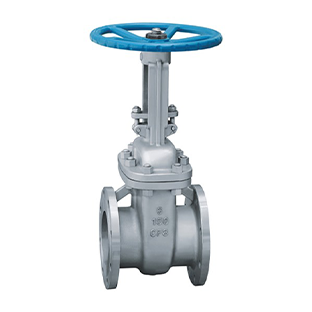High-Performance Carbon Steel Needle Valves for Precise Flow Control Applications
Understanding Carbon Steel Needle Valves Features and Applications
Needle valves are an indispensable component in various industrial applications due to their unique design and functionality. Among the different materials used for manufacturing needle valves, carbon steel is a popular choice because of its excellent strength, durability, and cost-effectiveness. This article explores the key features, benefits, and applications of carbon steel needle valves.
What is a Needle Valve?
A needle valve is a type of valve that has a slender, tapered point at the end of a valve stem. It is primarily used to control the flow of liquids and gases in piping systems. The design allows for fine adjustments in flow rate, making it ideal for applications that require precise control. Unlike a regular valve, a needle valve is typically used in applications where the flow needs to be regulated slowly and steadily.
Features of Carbon Steel Needle Valves
1. Material Strength Carbon steel is a strong material that provides excellent durability. Needle valves made from carbon steel can withstand high pressures and temperatures, making them suitable for various demanding environments.
2. Corrosion Resistance While carbon steel is not inherently corrosion-resistant, many manufacturers apply coatings or treatments to enhance the corrosion resistance of carbon steel needle valves. This makes them viable for applications in both industrial and mild corrosive environments.
3. Cost-Effectiveness Compared to valves made from costly alloys or stainless steel, carbon steel needle valves offer a more economical solution without compromising on quality and performance. This is particularly advantageous for projects with budget constraints.
4. Versatile Size Range Carbon steel needle valves are available in various sizes, enabling their use in different piping systems. They can be custom-designed to fit specific applications, from small-scale laboratory settings to large industrial systems.
carbon steel needle valve

5. Temperature Tolerance Carbon steel needle valves can handle a wide range of temperatures, making them appropriate for both low and high-temperature applications. This versatility is crucial in industries such as oil and gas, chemical processing, and power generation.
Applications of Carbon Steel Needle Valves
1. Oil and Gas Industry In oil and gas extraction and processing, precise flow control is paramount. Carbon steel needle valves are used to regulate pressure and flow rates in pipelines, ensuring safe and efficient transport of oil and gas.
2. Chemical Processing The chemical industry often requires precise control over reactive fluids and gases. Carbon steel needle valves are valuable in managing the flow rates of chemicals during production processes.
3. Water Treatment In water treatment facilities, these valves help control the flow of water and treatment chemicals effectively. Their ability to withstand varying pressures and temperatures makes them suitable for this application.
4. Power Generation In power plants, needle valves are crucial for regulating steam and other fluids. Carbon steel's durability under high pressure and temperature makes it a preferred choice in turbine and boiler applications.
5. HVAC Systems Needle valves are used in heating, ventilation, and air conditioning (HVAC) systems to manage and optimize the flow of refrigerants and other fluids, contributing to overall system efficiency.
Conclusion
Carbon steel needle valves are a vital component in numerous industries due to their strength, durability, and ability to provide precise flow control. Whether used in oil and gas, chemical processing, or HVAC systems, these valves contribute to the efficiency and safety of operations. When selecting a needle valve, it's essential to consider the specific requirements of the application, including pressure, temperature, and environmental factors, to ensure optimal performance. With their favorable properties and wide-ranging applications, carbon steel needle valves remain a staple in modern industrial systems.
-
The Key to Fluid Control: Exploring the Advantages of Ball Valves in Industrial SystemsNewsJul.09,2025
-
The Versatile World of 1, 2, and 3 Piece Ball ValvesNewsJul.09,2025
-
Stainless Steel Ball Valves: The Ideal Choice for Efficient Flow ControlNewsJul.09,2025
-
Optimizing Fluid Control with Ball Float ValvesNewsJul.09,2025
-
Manual Gate Valves: Essential for Control and EfficiencyNewsJul.09,2025
-
Everything You Need to Know About Butterfly ValvesNewsJul.09,2025
-
The Versatility of Wafer Type Butterfly ValvesNewsJul.08,2025




